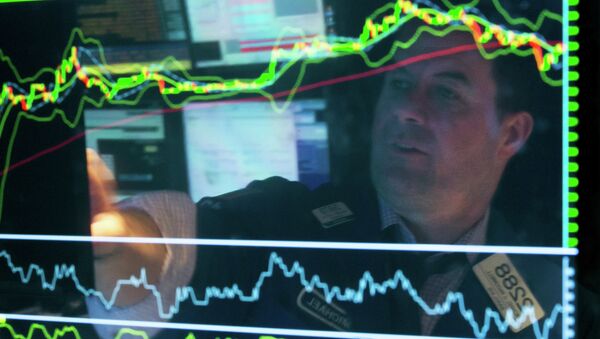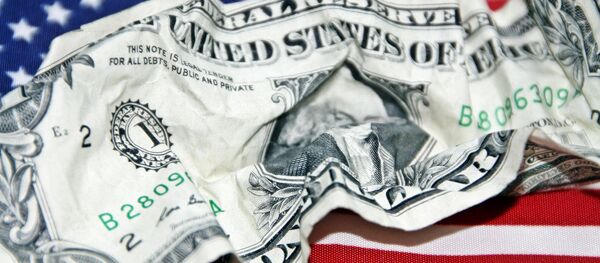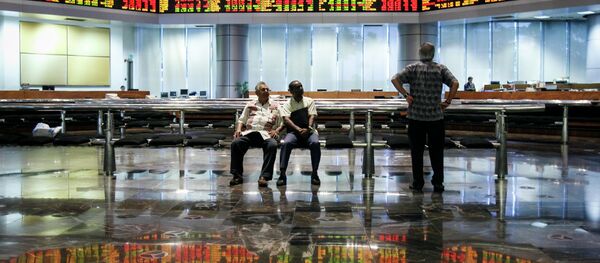Kristian Rouz – Most equity markets in Asia-Pacific posted gains on Friday after mainland China halted the previous day’s stocks after a significant plunge.
The stock rally in Asia-Pacific made up somewhat for the regional markets’ first monthly decline this year, pushed up by a weaker yen, at its 12-year lowest against the dollar, and a rebound in commodities. The MSCI APEX 50 Index rose after three days of losses, adding 0.2%, paring its monthly decline to 1.1%. The Shanghai Composite Index was up 0.5%, possibly after Beijing’s intervention, after having collapsed 6.5% the day before.
"The correction is not yet over," David Dai of Nanhai Fund Management in Shanghai said. "Yesterday's slump was too rapid, so many investors didn't have time to flee. Many are still seeking an exit. The market has risen too much, and too fast, so the confluence of bad news is causing panic selling."
Australia’s S&P/ASX 200 Index rose 1.1% on the commodities’ advance as crude oil added 0.8%. Energy stocks led Australian rally. In Korea, the Kospi Index added 0.2% as a stronger dollar environment is favourable for the nation’s export-reliant manufacturers. A similar situation pushed Japan higher, with a broader Topix Index up 0.1%, at its highest since October 2007.
Japan’s Nikkei 225 Index hit its 15-year highest on Friday after 11 straight days of gains. The index also has been expanding five last months, and investors are in a bull market here as the Japanese manufacturers are promising greater returns per share amidst a very favourable foreign trade situation.
In the Eurozone, Greece is a major concern, and the situation is very complicated with more bets now that Athens will default eventually. Nonetheless, the indebted nation’s government is still hoping to reach a cash-for-reforms deal with its creditors by Sunday.
The Stoxx Europe 600 Index has been performing at its best since February so far amidst an influx of investment money. Solid economic growth in the region’s biggest economies provides a reliable backing for the stocks, so there is no risk of bubble here thus far, as opposed to the North American situation.
The common currency added 0.1% to $1.0957, having hit its one-month lowest at $1.0819 just several hours prior.
European shares were in the red at the open on Friday. Some investors are taking their time till next week as the resolution of the Greek crisis is due this coming weekend. There is no legit reason to sell all across Europe as fundamentals look good and global picture favourable, however, not many market participants are willing to buy, cautious of a still possible Greek collapse. What is happening now is a market correction, preparing for the worst outcome of the Greek situation.
The Stoxx Europe was down 0.7%, and Greece’s ASE Index declined the most, down 1.5%. The nation is seeking a way to pay off $1.75 bln to IMF in June. In London, the FTSE 100 Index was down 0.36%, in Frankfurt, the DAX Index retreated 1.30%, while the French CAC 40 Index lost 1.08%.




